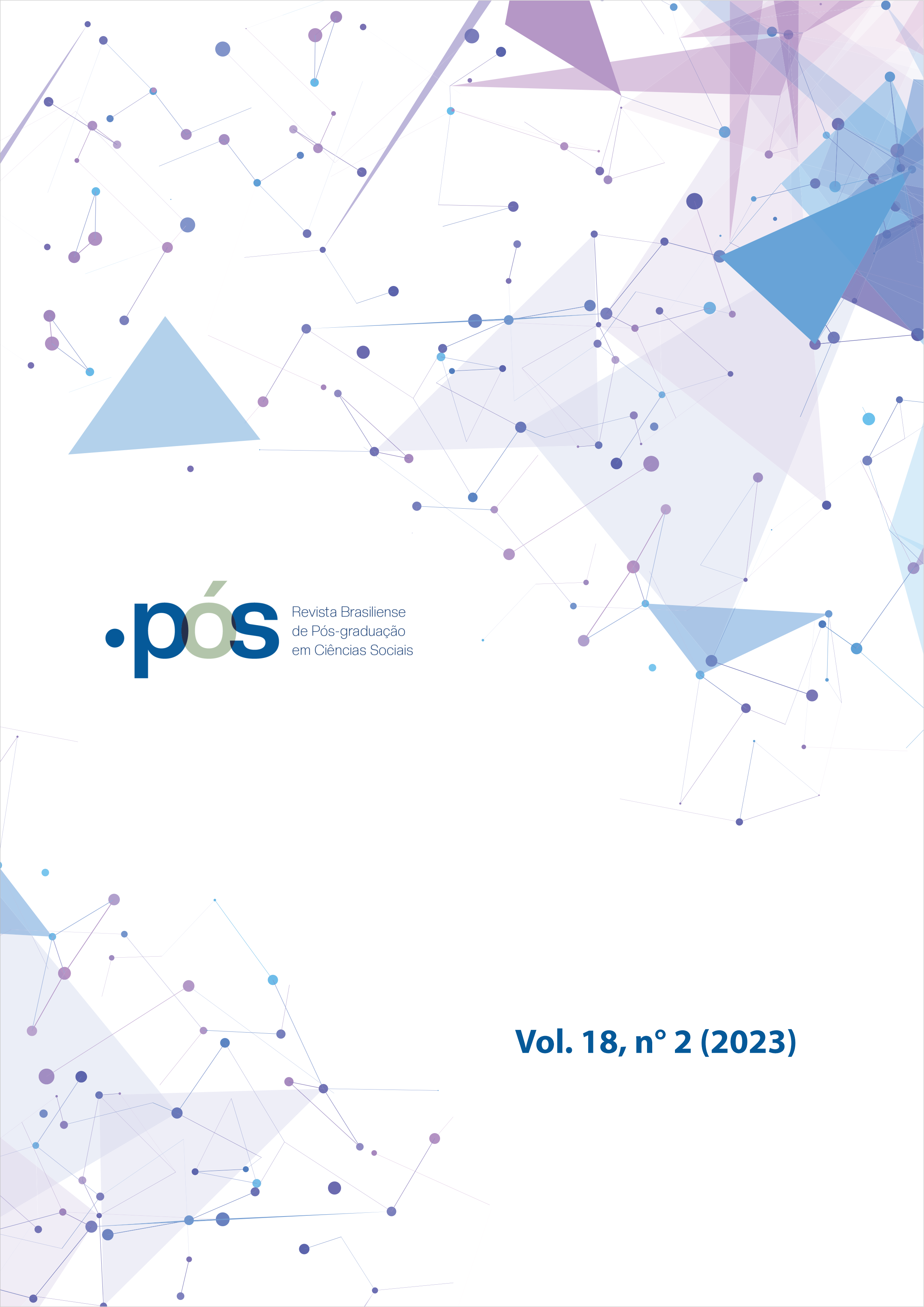Identity and intersectionality
Contributions to the investigation of black identity in Brazil
Keywords:
Identity, Subalternity, Intersectionality, Brazilian blacknessAbstract
The aim of this paper is to generate an analysis that contributes to deepen the studies on black identity in Brazil, considering its formation and connections. Through the discussions about identity, difference and subalternity, in addition to the theoretical-methodological basis of intersectionality, it seeks to highlight the limits and possibilities of research on the formation of black Brazilian identity. To this end, bibliographical research and the dialectical-comprehensive method are used as research and analysis tools. In this context, it is noted that the social construction of identity is influenced by several processes, which encompass transformations, dynamics and relationships that manifest material, symbolic, psychic, historical and social effects. The encounter with the Other, with the non-self, plays a fundamental role in the apprehension and construction of the Self. The Brazilian intersectional approach introduces a new perspective on identities, considering the impact of oppressions on the modification of identities, as well as the forms of resistance developed by oppressed social groups. Thus, when analyzing the construction of black identity under the prism of intersectionality, it is crucial to take into account the specific dynamics of each community, highlighting their similarities and particularities, since a variety of interactions and relationships occurred in a non-homogeneous way.
Downloads
References
BARROS, Douglas Rodrigues. Lugar de negro, lugar de branco? Esboço para uma crítica à
metafísica racial. São Paulo: Hedra, 2019.
BAUMAN, Zygmunt. Identidade. Rio de Janeiro: Zahar, 2005.
BHABHA, Homi. O local da cultura. Belo Horizonte: EdUFMG, 1999.
COLETIVO COMBAHEE RIVER. Manifesto do Coletivo Combahee River. Tradução:
Stefania Pereira e Letícia Gomes. Plural, v. 26, n. 1, 2019.
COLLINS, Patricia Hill. Pensamento feminista negro: conhecimento, consciência e a política
do empoderamento. São Paulo: Boitempo, 2019.
COLLINS, Patricia Hill; BILGE, Sirma. Interseccionalidade. São Paulo: Boitempo, 2021.
DIAS, Matheus Felipe Gomes. A Frente Negra Brasileira: institucionalização, contestação e
fascismo. Revista Práxis Comunal, v. 2, n. 1, 2019.
DOMINGUES, Petrônio. Cidadania por um fio: o associativismo negro no Rio de Janeiro
(1888-1930). Revista Brasileira de História, v. 34, 2014.
FALQUET, Jules. História do Coletivo Combahee River. Lutas Sociais, v. 22, n. 40, 2018.
FANON, Frantz. Pele negra, máscaras brancas. São Paulo: Ubu, 2020.
FERNANDES, Florestan. O negro no mundo dos brancos. São Paulo: Difel, 1972.
GIL, Antonio. Métodos e técnicas de pesquisa social. São Paulo: Atlas, 2017.
GONZALEZ, Lélia. A categoria político-cultural de amefricanidade. In: RIOS, Flavia; LIMA,
Márcio (Orgs.). Lélia Gonzalez: por um feminismo afro latino americano. Ensaios,
intervenções e diálogos. Versão Digital. Rio de Janeiro: Zahar, 2020b.
GONZALEZ, Lélia. A mulher negra na sociedade brasileira: Uma abordagem político-econômica.
In: RIOS, Flavia; LIMA, Márcio (Orgs.). Lélia Gonzalez: por um feminismo afro latino americano.
Ensaios, intervenções e diálogos. Versão Digital. Rio de Janeiro: Zahar, 2020a.
HAIDER, Asad. Armadilha da identidade: raça e classe nos dias de hoje. São Paulo: Veneta,
HALL, Stuart. A identidade cultural da pós-modernidade. São Paulo: DP&A, 2014.
HALL, Stuart. Quem precisa da identidade? In: SILVA, Tomaz Tadeu (org.). Identidade e
Diferença: a perspectiva dos estudos culturais. Petrópolis: Vozes, 2022.
HIMES, Chester. O Harlem é escuro. Porto Alegre: L&PM, 2006.
MBEMBE, Achielle. Necropolítica. São Paulo: N-1 Edições, 2018.
MOURA, Clóvis. Sociologia do negro brasileiro. São Paulo: Perspectiva, 2019.
OLIVEIRA, Ana Caroline Amorim. Lélia Gonzalez e o pensamento interseccional. Revista
Interritórios, v. 6, n. 10, 2020.
RIBEIRO, Jonatas Roque. A classe de cor: uma história do associativismo negro em Minas
Gerais (1880-1910). Tese (Doutorado em História Social) – Instituto de Filosofia e Ciências
Humanas, Universidade Estadual de Campinas, Campinas, 2022.
SPIVAK, Gayatri. Foreword: upon Reading the companion to postcolonial studies. In:
SCHWARZ, Henry; RAY, Sangeeta (orgs.). A companion to postcolonial studies. Oxford:
Blackwell, 2000.
SPIVAK, Gayatri. Pode o subalterno falar? Belo Horizonte: EdUFMG, 2010.
THEODORO, Mário. A sociedade desigual: racismo e branquitude na formação do Brasil. Rio
de Janeiro: Zahar, 2022
Downloads
Published
Versions
- 2024-01-25 (2)
- 2023-12-28 (1)
How to Cite
Issue
Section
License
Copyright (c) 2023 Pós - Revista Brasiliense de Pós-Graduação em Ciências Sociais

This work is licensed under a Creative Commons Attribution-NonCommercial 4.0 International License.













